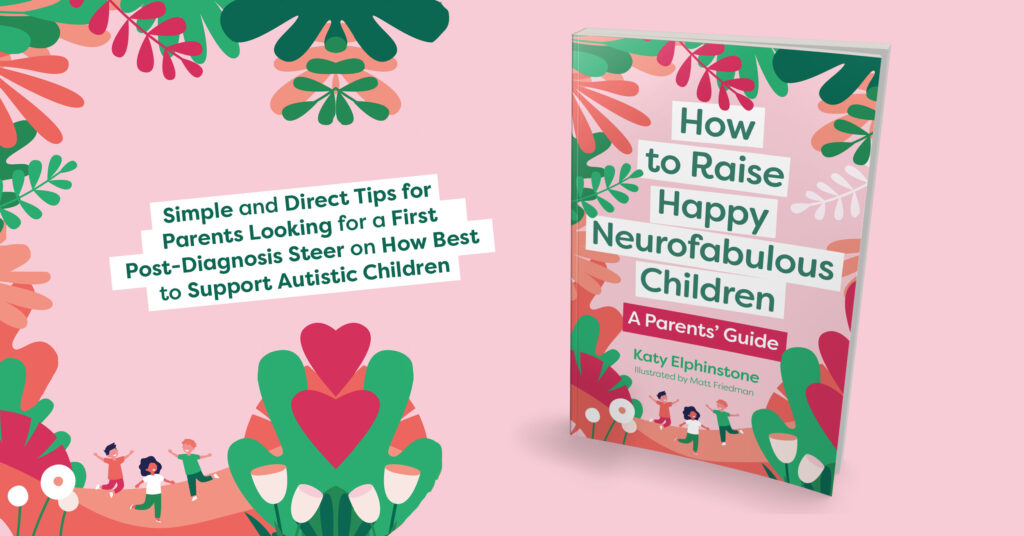By Katy Elphinstone.
As a parent of two (one being an autistic child), and an autistic person herself, Katy Elphinstone is well equipped to know what works and what doesn’t when it comes to educating and parenting neurodivergent children. You can buy her book, How to Raise Happy Neurofabulous Children: A Parents’ Guide here.

- We either see the point of learning a thing, or we don’t. ‘Incentives’ and ‘consequences’ do little to change that. When we don’t see the point, we might really try (especially e.g. if we like the teacher a lot) but honestly… it’s like catching smoke in your hand. It just ain’t happening. ☹
- We’re usually not good at lying, or even exaggerating (in fact, for most of us it rarely occurs to us to do so). That’s a real problem in an environment where everyone’s striving for the prize.
- We’re not striving for the prize! We may not have noticed there is a prize, as we were too busy learning. Often about something other than what’s on the whiteboard.
- We’re totally puzzled when we get punished for doing what to us looked (obviously) by far the most important and interesting thing to do in the moment.
- Often, things we get punished for aren’t voluntary! Not only that, we may have literally no idea we’re doing them (foot-tapping? Hair-twiddling? Pacing? Zoning out?).
- Our brain is liable to do a ‘blue screen’ on us when we’re under pressure or feel judged… or even just feel observed. And the more anxious we are, the less we remember. We might forget even the basics, if it gets really bad! (Do I know how to hold a pen? Uh…)
- (If we notice) we may not be able to bear seeing the pain of others when we win at things. We’ll give the prize we won straight to that little girl who cried after she moved in Musical Statues – thereby ruining the whole point of the game.
- We question things the teacher says. We don’t mind being questioned about our special interests (not at all! It makes for an interesting conversation), so we have no idea why the teacher gets really angry and talks about something totally off-topic – like, a detention.
- We don’t get why some people would be ‘more equal’ than others. To us, everyone is actually equal. The only reason we’d revere and follow a certain person, in any scenario, is if they were clearly the most knowledgeable or skilled in the task at hand.
- We have laser-beam awareness about unfairness. We spot injustice like a big red stain in the snow. That doesn’t mean we know whose body’s lying there… or why (or even if!). We just see the stain. Aarrggh. This isn’t limited to unfairness towards ourselves. We can easily disintegrate if we witness it towards others, as well. Especially if those people have no voice (e.g. they might be furry and four-footed).
I think it’s not so much to wonder at, really, that autistic people struggle so much in an education system that consistently uses ‘sticks’ and ‘carrots’ to get kids to conform to its competitive norms.
My thread on #SchoolTrauma https://twitter.com/KatyElphinstone/status/1590770869642543106
You can buy Katy Elphinstone’s parenting book, How to Raise Happy Neurofabulous Children: A Parents’ Guide here.